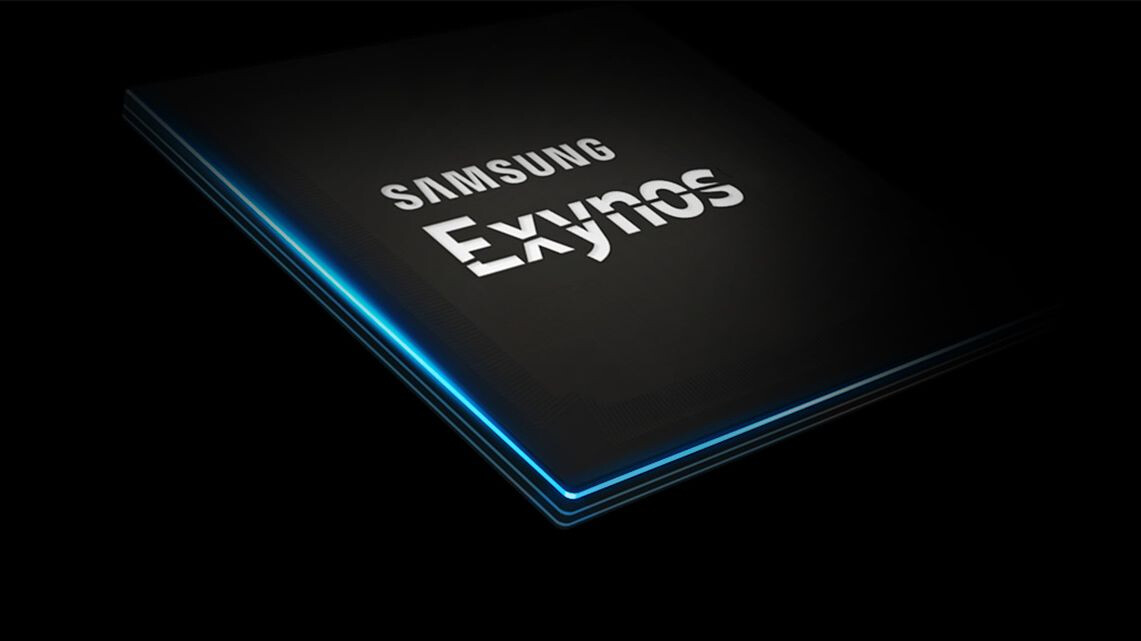The rumor that all Galaxy S22 devices will launch with the Snapdragon 8 Gen 1 chipset is losing its credibility, as it seems. The Dutch site GalaxyClub has found a handful of Galaxy S22 back order listings in Europe that all point toward Exynos-equipped devices.
Even though there’s no mention of the Exynos brand in the listings, the model numbers strongly suggest that these phones are all equipped with the Exynos 2200 chipset.
The listed phones bear the model numbers SM-S901B, SM-S906B, and SM-S908B, where the “B” designation is reserved for the Exynos variant (while US-bound Snapdragon Galaxy S22 models are marked with a “U” after the number).
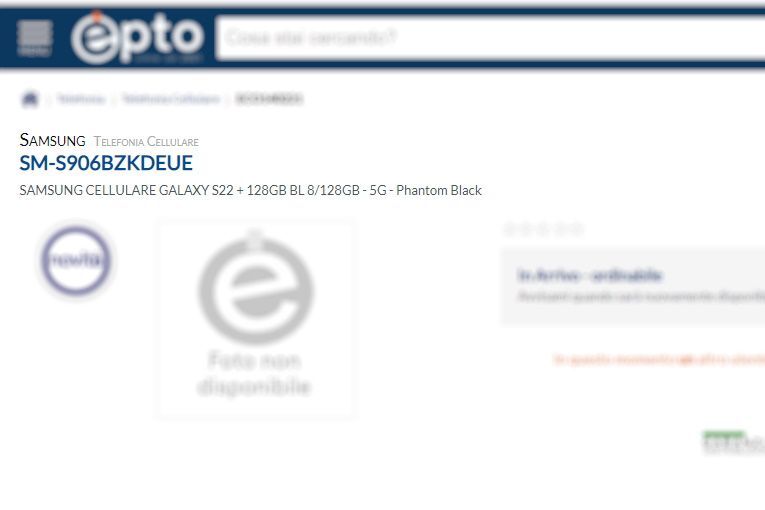
One of the Galaxy S22 listings on the Italian site Epto
Several Geekbench results of devices carrying the aforementioned “B” designation have leaked online, and the core configuration and clock speeds of these tested models fall in line with what we expect from the Exynos 2200.
This latest development corroborates with another slew of rumors, dating back to November last year. The famous tipster @IceUniverse (boasting a relatively solid track record with leaks) posted on Twitter that the Galaxy S22 will still get Exynos 2200 in some regions.
A week later, Korean site TheElec also stated that Samsung will be using both the Snapdragon 8 Gen 1 and Exynos 2200 silicon inside the new Galaxy S22 series. Now it seems that European users will indeed get the Exynos 2200 variants, although back order listings could change at the last minute.
Snapdragon 8 Gen 1 versus Exynos 2200 – which one is better?
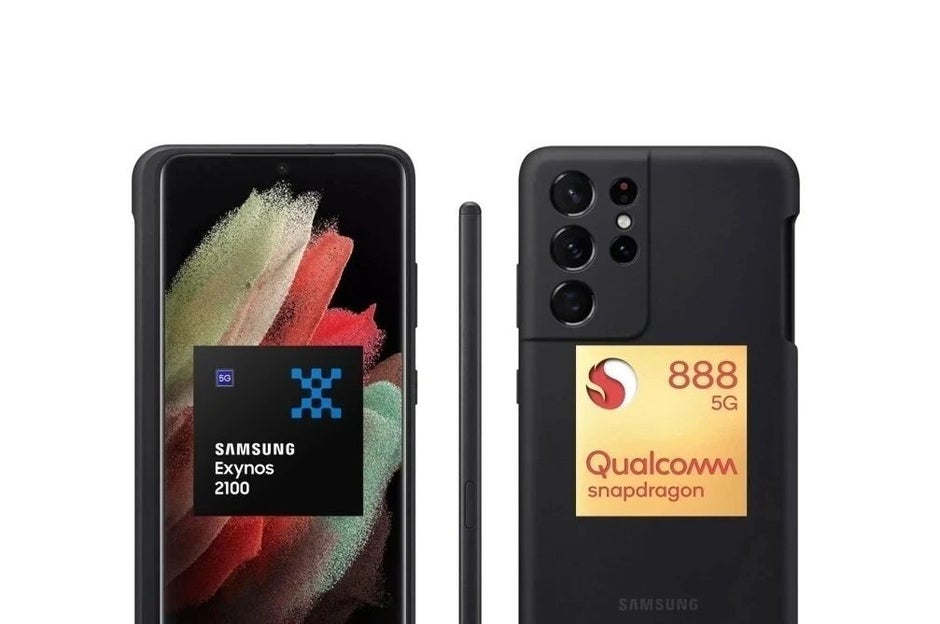
These two chipsets aren’t all that different, actually. Both processors use the same 1+3+4 core configuration, consisting of one big Cortex X2 core, three Cortex-A710 cores, and four Cortex-A510 efficiency cores.
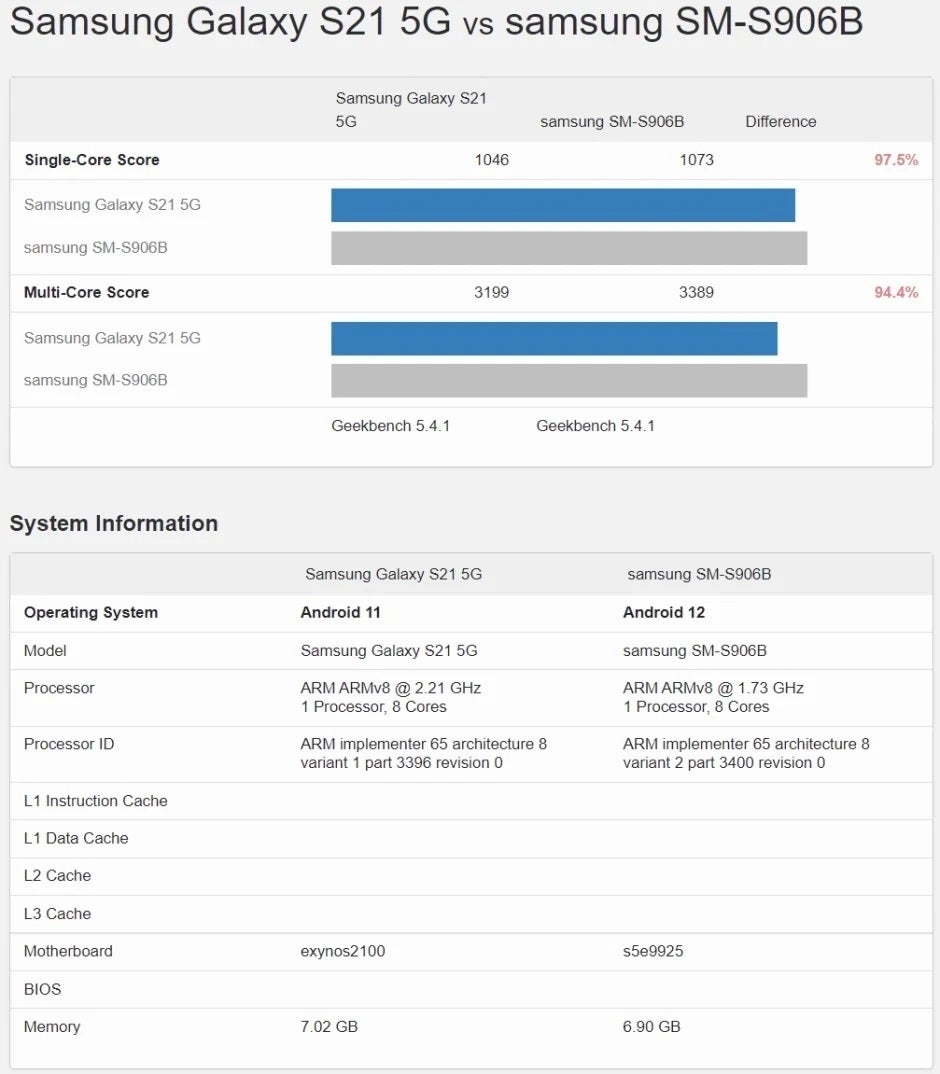
Early benchmarks showed that the Exynos 2200 is on par with last-year’s Snapdragon 888
The difference lies in clock frequencies, cache levels and overall optimization. There are several leaked benchmark scores of the alleged Exynos 2200, and while the early ones showed that Samsung’s new silicon is lagging behind the Snapdragon 8 Gen 1, the most recent ones are painting a different picture.
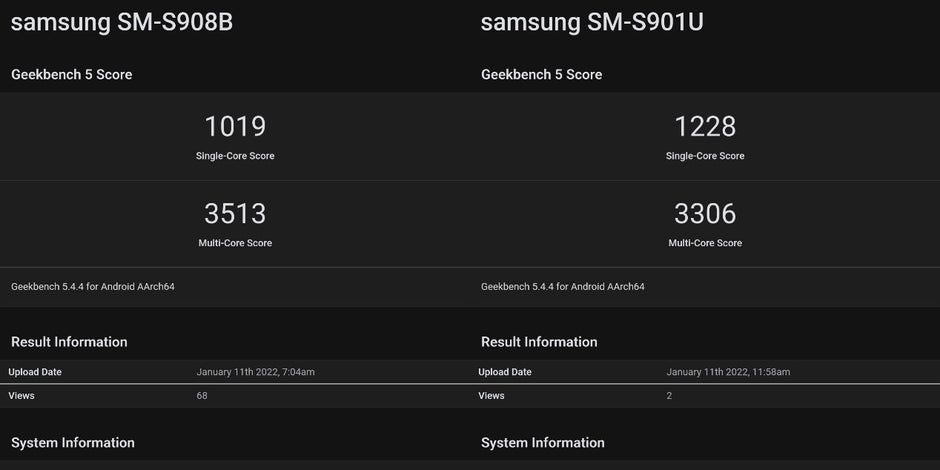
More recent benchmark scores show that the Exynos 2200 might have the edge when it comes to multicore performance
The biggest difference between both chipsets can be found in the graphics department. Samsung made big news when the company announced the collaboration with AMD and the plan to bring AMD’s RDNA graphics architecture to its mobile phones, ray-tracing included.
Our take
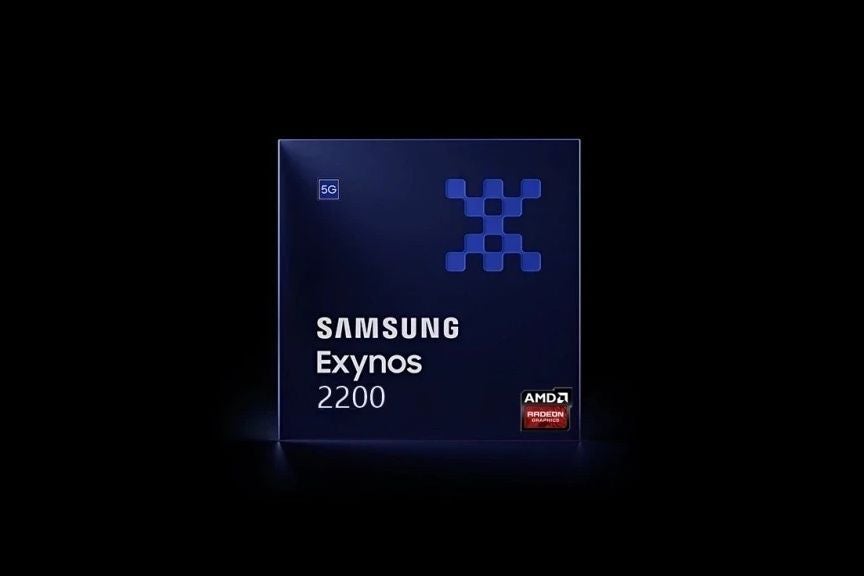
If we wanted to throw-in some healthy tech gambling (as if there’s such a thing), we would say that both chipsets will be pretty close when it comes to performance. First, the CPU architecture is very close and there is so much you can do to boost performance (tweaking clock speeds and managing thermal throttling).
Second, Samsung is launching its next flagship series in two flavors, and it would face a tremendous backlash if there’s a huge performance difference between the two variants. Some of you might remember the petition from 2019 in which angry users demanded the ban of Exynos-equipped flagships.
Samsung wouldn’t want the history to repeat itself on this one, trust us. So, while we’re generally positively excited about the RDNA and the Exynos 2200, we don’t expect huge deviations between the two Galaxy S22 versions.

